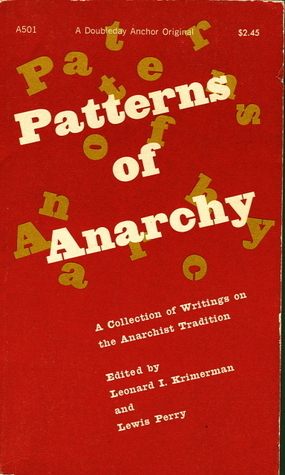As comprehensive a collection of writings and thoughts on anarchism as could possibly be collected. ALL views (through its publication date of 1966) that make a claim to anarchist thought are represented thoroughly and fairly, from pacifism to bomb-throwing, from anarcho-communism to anarcho-capitalism, and everything in between. Included authors are those who view anarchy as a means to an end, those who see anarchy as an end unto itself, and those with a pragmatic eye to anarchism dependent upon individual cases. Each view is contrasted and criticized by opposing thinkers. At the end is an invaluable bibliography for expansion upon the thoughts you've been exposed to. I can't praise the editors enough in their selection of articles and their positioning of them for ease of understanding and reference, particularly for those daring enough to venture past their own pre(mis)conceptions to discover that "anarchy" isn't "chaos".
Personally, I hold great differences of opinion with almost all of the writers contained within as I see them as too (sometimes absurdly) optimistic, substituting theory for observable truth. But nevertheless, I've come to understand them in ways that weren't possible before reading this, finding that in the end most were simply writing with the goal of eliminating or reducing "the habit of infringing or imposing" one's will upon another and to "chip away at the habit of governance."
Truly, a remarkable and mind-expanding collection. Ten stars.

